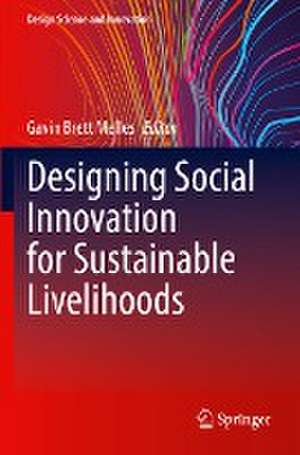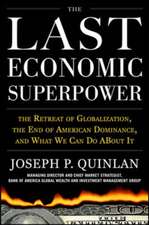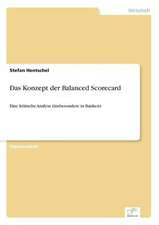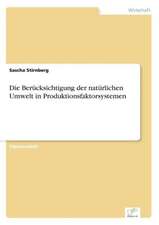Designing Social Innovation for Sustainable Livelihoods: Design Science and Innovation
Editat de Gavin Brett Mellesen Limba Engleză Paperback – 16 feb 2023
| Toate formatele și edițiile | Preț | Express |
|---|---|---|
| Paperback (1) | 884.56 lei 6-8 săpt. | |
| Springer Nature Singapore – 16 feb 2023 | 884.56 lei 6-8 săpt. | |
| Hardback (1) | 890.54 lei 6-8 săpt. | |
| Springer Nature Singapore – 15 feb 2022 | 890.54 lei 6-8 săpt. |
Din seria Design Science and Innovation
- 19%
 Preț: 562.15 lei
Preț: 562.15 lei - 20%
 Preț: 939.45 lei
Preț: 939.45 lei - 20%
 Preț: 752.45 lei
Preț: 752.45 lei - 24%
 Preț: 779.64 lei
Preț: 779.64 lei - 18%
 Preț: 1108.19 lei
Preț: 1108.19 lei - 24%
 Preț: 778.81 lei
Preț: 778.81 lei - 24%
 Preț: 929.55 lei
Preț: 929.55 lei - 18%
 Preț: 941.05 lei
Preț: 941.05 lei - 15%
 Preț: 523.07 lei
Preț: 523.07 lei - 18%
 Preț: 895.27 lei
Preț: 895.27 lei - 18%
 Preț: 953.20 lei
Preț: 953.20 lei - 18%
 Preț: 1398.45 lei
Preț: 1398.45 lei - 18%
 Preț: 948.61 lei
Preț: 948.61 lei - 15%
 Preț: 636.63 lei
Preț: 636.63 lei - 18%
 Preț: 787.61 lei
Preț: 787.61 lei - 18%
 Preț: 1252.76 lei
Preț: 1252.76 lei - 18%
 Preț: 1390.89 lei
Preț: 1390.89 lei - 24%
 Preț: 905.95 lei
Preț: 905.95 lei - 5%
 Preț: 1280.61 lei
Preț: 1280.61 lei - 18%
 Preț: 888.63 lei
Preț: 888.63 lei -
 Preț: 356.99 lei
Preț: 356.99 lei - 24%
 Preț: 858.44 lei
Preț: 858.44 lei - 18%
 Preț: 893.53 lei
Preț: 893.53 lei
Preț: 884.56 lei
Preț vechi: 1078.74 lei
-18% Nou
Puncte Express: 1327
Preț estimativ în valută:
169.26€ • 177.17$ • 140.88£
169.26€ • 177.17$ • 140.88£
Carte tipărită la comandă
Livrare economică 31 martie-14 aprilie
Preluare comenzi: 021 569.72.76
Specificații
ISBN-13: 9789811684548
ISBN-10: 9811684545
Pagini: 165
Ilustrații: XI, 165 p. 42 illus., 30 illus. in color.
Dimensiuni: 155 x 235 mm
Greutate: 0.26 kg
Ediția:1st ed. 2022
Editura: Springer Nature Singapore
Colecția Springer
Seria Design Science and Innovation
Locul publicării:Singapore, Singapore
ISBN-10: 9811684545
Pagini: 165
Ilustrații: XI, 165 p. 42 illus., 30 illus. in color.
Dimensiuni: 155 x 235 mm
Greutate: 0.26 kg
Ediția:1st ed. 2022
Editura: Springer Nature Singapore
Colecția Springer
Seria Design Science and Innovation
Locul publicării:Singapore, Singapore
Cuprins
Designing Social Innovation for Sustainable Livelihoods.- Designing Sustainable Livelihoods for Informal Markets in Dhaka.- Designing Livelihoods Responsibly: Insights from Seed Conservation and Management Practices among Farming Communities in India.- Designerly Ways for Sustainable Livelihoods.- One Size Does Not Fit All: Heterogeneous Groups and Digital Training for Women in Tamil Nadu, India.- Indo-German Cross-cultural Collaboration: Sharing Experience and Co-creating Knowledge for Sustainable Urban Livelihoods Design.- Importance of Forest and Non-forest Environmental Resources to Sustainable Rural Livelihoods: Insights from a Case Study in Nepal.- Grassroots Innovation Based Sustainable Livelihoods: Role of Intermediaries.
Notă biografică
Dr. Gavin Melles is Professor (Adjunct) of Sustainability and Social Innovation at Swinburne University’s Design School. He is currently (2021-2022) Senior Fellow in Sustainability in the Technical Design Dept. of Technical University Dresden. He is a research affiliate at the Centre for Design Innovations, the Manufacturing Futures Research Institute, and the Collaborative Research Centre for Low Carbon Living (2014-2019). His research and teaching interests include design education, sustainability, social innovation and related issues. He has held numerous international fellowships, most recently at Edinburgh University (2016), IIT Madras (2019) and Technical University of Dresden (2021).
Textul de pe ultima copertă
This volume discusses how design broadly understood as design of business, policy, product, system, etc. can produce socially responsible innovations with livelihoods consequences. Sustainable Livelihoods Framework (SLF) is a robust framework for analysing and measuring social impact for excluded populations and groups. This is illustrated with case studies from India, Sri Lanka, Bangladesh, Nepal by discussing how initiatives concerned with design in the broad sense have the potential to create sustainable livelihoods. This volume will be of interest to scholars and practitioners in Sustainable Development and Design.
Caracteristici
Practical illustration of links in cases between design and sustainable livelihoods Enriches understanding by including contributions from leading experts across the globe Many courses on social design use various article collections – this brings work together


























